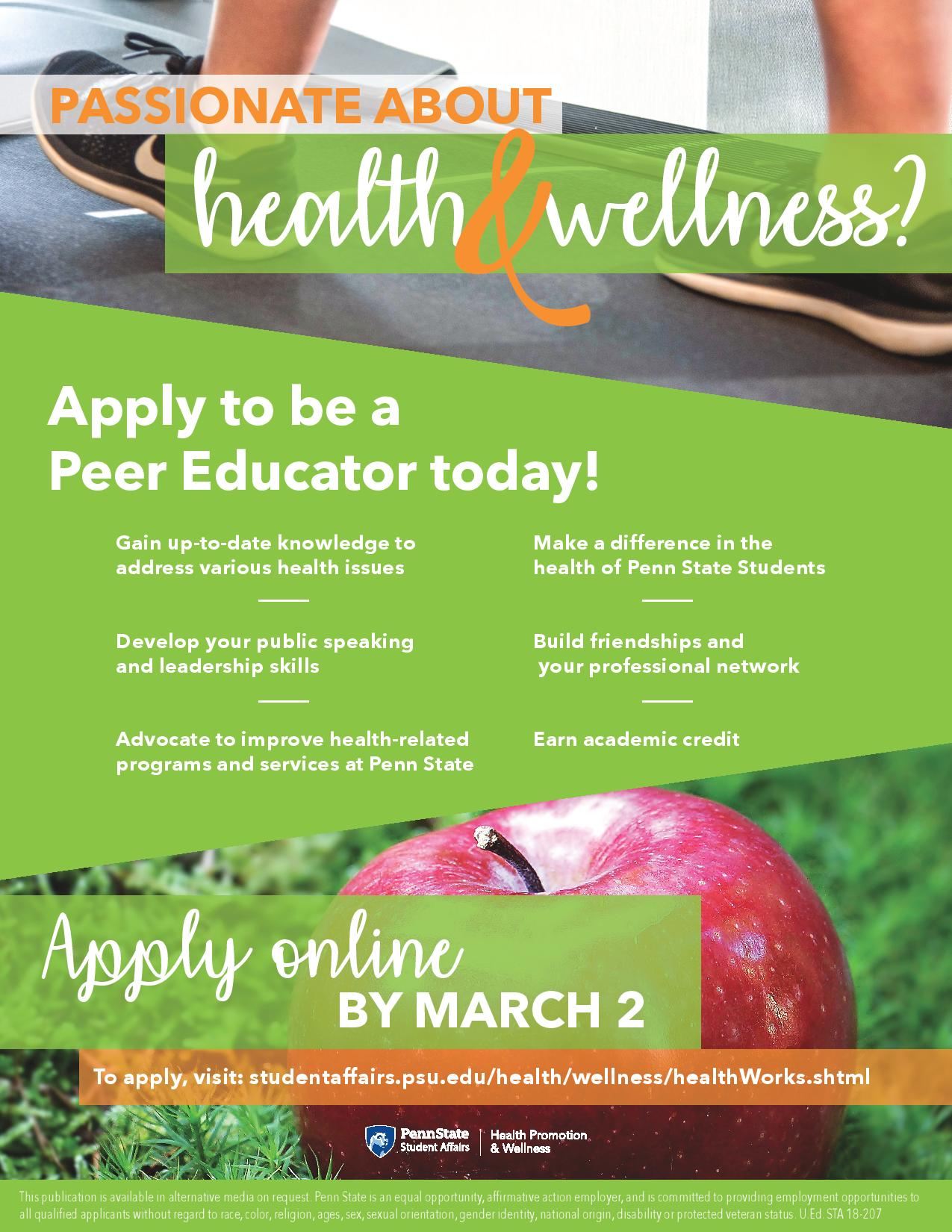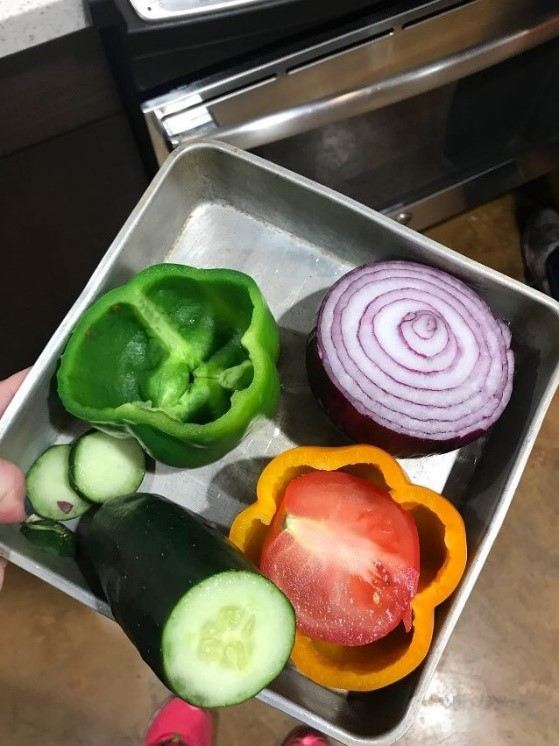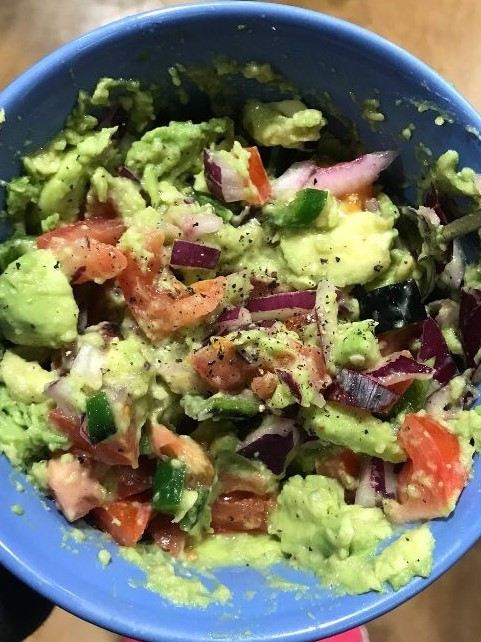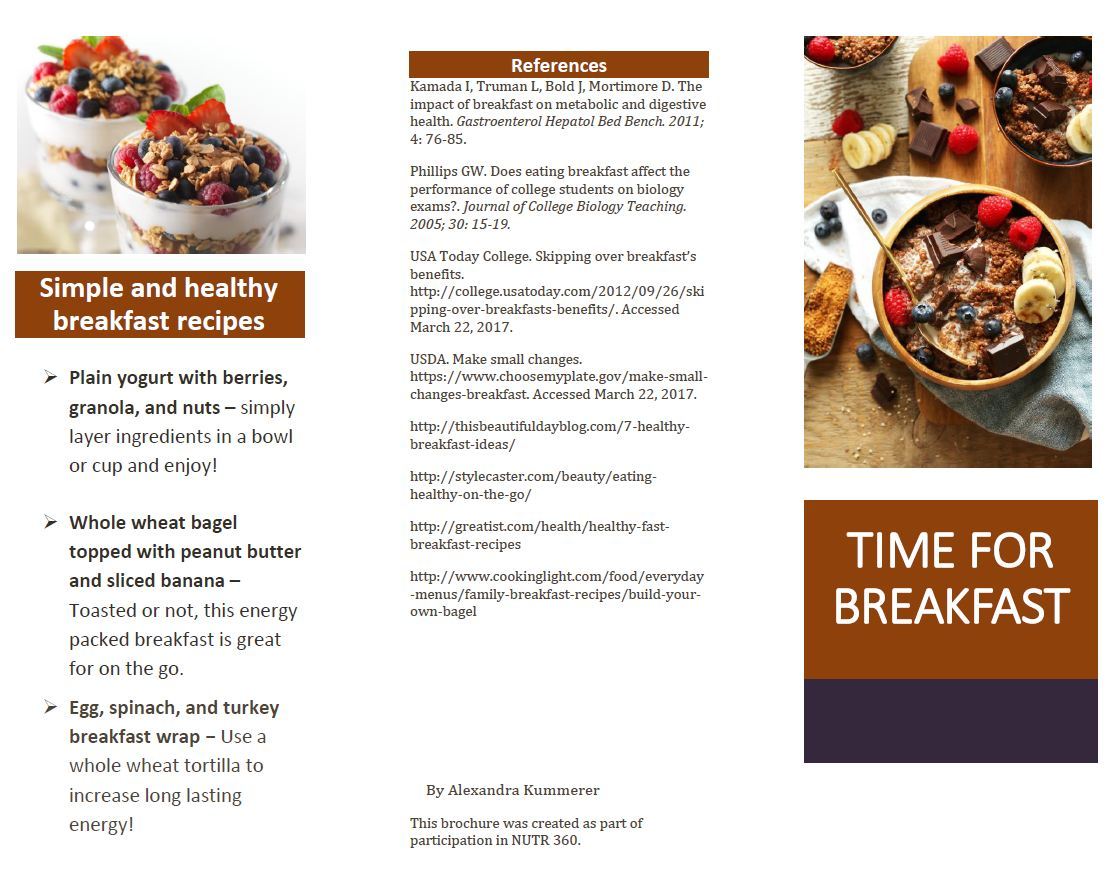Health Promotion and Wellness is currently accepting applications for HealthWorks, a peer outreach and education program at University Park. The deadline to apply is March 2.

HealthWorks offers two unique opportunities for students who are interested in health and wellness. These opportunities include facilitating one-on-one wellness services and conducting outreach events and educational workshops. During the application process students prioritize which opportunity they are most interested in.
Participation in the program is a three semester commitment, which includes one semester of training (during fall 2018) and two semesters of service. For this reason, students who wish to apply must plan to graduate in fall 2019 or later.
Training for the program requires the completion of a three-credit course offered through Biobehavioral Health in the fall semester. Students learn about the following topics in the course: alcohol and other drugs, financial literacy, sexual health, nutrition, physical activity, sleep, and stress. There are no prerequisites required to register for the course.
After completing the 3-credit course, participants are required to complete 45 hours of service each semester. Members participate in one of two opportunities: 1) deliver free wellness services about stress and time management, physical activity, nutrition, sleep, sexual health and healthy relationships, and financial literacy; or 2) conduct educational workshops, hold outreach events, plan and implement health promotion initiatives. A few examples of the health promotion initiatives include conducting healthy cooking demonstrations, writing blog and social media posts for Healthy Penn State and appearing in The Body Monologues. A small group of students are trained to provide HIV test counseling.
If you’re passionate about health and promoting the well-being of all Penn State students, then HealthWorks is a great fit for you,” said Christina Volpicelli, a senior majoring in biobehavioral health. “HealthWorks also offers many leadership and learning opportunities for its members such as video editing, leading health campaigns, public speaking and teaching skills to educate the Penn State community. Everything you will learn and the people you will meet through this organization will benefit you throughout any career you wish to pursue.”
For more information about HealthWorks, including an application, please visit http://studentaffairs.psu.edu/health/wellness/healthWorks.shtml.





